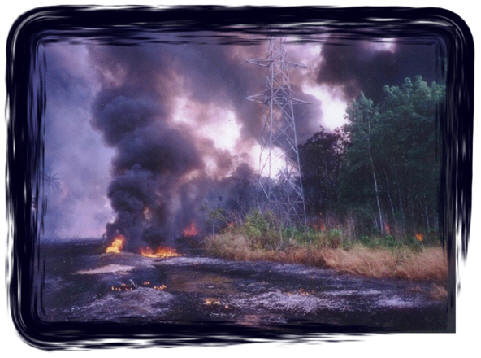Beginnings in Genesis – Exegetical Snapshot 2

In the timeline we’re given, when God eventually loses patience and decides to blot out human kind, he makes that decision after ten generations of births and deaths in chp 5. At the birth of each significant heir, and the numbering of the years of the father, there is growing hope that the negative history can somehow be overcome, even though there is pain in the working of the soil.
Lamech’s expectation is given voice when he names his own son, ‘this one will provide us with relief’ (gen 5:29). Lamech seems to believe that his son can somehow undo or neutralise the curse of Adam, and I guess many parents can echo this feeling of new hope in the birth of a child. But as many parents will also know, sometimes we burden our children with our expectations that they can never fulfill.
So when chp 6 opens with the bizarre story of the Nephilim and the sexual relations of ‘divine beings’ and the ‘daughters of men’, we are alerted to something strange in the history. Chapter 5 has already signalled that something is wrong. Note verse 1:
when God created man, he made him in the likeness of God. He created them male and female and blessed them. And when he had created them, he called them ‘man’
gen 5:1,2
This is followed by verse 3 (funnily enough!)
when Adam had lived 130 years, he had a son in his own likeness, in his own image; and he named him Seth
gen 5:3
It seems that the text wants to alert us to the possibility that that the function of creating human beings in his image and naming them has been taken over by the humans themselves. And that by 6:5,12 this image has been distorted to grotesque proportions of wickedness and violence. Furthermore, this distortion is something that human beings seem incapable of discerning, for we are told specifically that only God has seen it; ‘the Lord saw..’
We are pitched headlong back into the Garden and the initial rebellion of Adam and Eve in their desire for the ‘knowledge of good and evil’ (gen 3:5), a knowledge which once gained has led to an awful misfortune in that they both create and suffer from evil. There is then a sad conflict between the hopes and expectations of Lamech that Noah would be a nachem, or relief, and what becomes instead in God’s perspective a deep regret or, in Hebrew, nechem, (gen 6:6) that he had ever made human beings.
We can understand now, that far from moving us ten generations away from the curse on the adama (ground) because of Adam, human kind has instead intensified that curse which will now result in their terrible, complete destruction.
The midrashic writings of Rashi are interesting here. The word God uses for destruction is, in Hebrew, emcheh, translated ‘I will blot out’ (gen 6:7). Rashi translates it thus,
He is dust, so I will bring water upon him, and dissolve him.
It seems to me that Rashi thus connects humankind’s destruction to the very nature of their identity and their rebellion. Avivah Gottlieb Zornberg writes of this interpretation:
This is to be a watery destruction, not a dry one. The original dust-earth of man – his relation to the adama – is to be radically annulled by an overapplication, as it were, of water. It then transpires that man’s destruction is also to be the destruction of all life – animal, reptile, and bird – again under the rubric of nechama – the cosmic ‘regret’ of the creative God.
Genesis – the beginning of desire (p39)
What a phrase that is, ‘the cosmic regret of the creative God’!
How awful this is. We are not alone in our pursuits. We are neither the full measure nor the conclusion of our misappropriation of the created order. The implications of our selfishness and arrogance does not die with us, but we implicate everyone and everything. As we go, so goes the whole of creation. It’s a frightening thought in these days of threatening global climate disaster, of rising oil prices, of wars for fresh water. The Genesis text puts it very simply:
I am surely going to destroy them (human beings) AND THE EARTH.
gen 6:13
We need hope.



Glenn – can’t find an email address for you or anything, so a somewhat out-of-place comment here will have to do! I’ll be back in NI in two weeks time, 17th-21st. Got some fundraising to do, but should have some free time! If you’re about and able to make it into Belfast on the 17th would be great to grab a coffee?